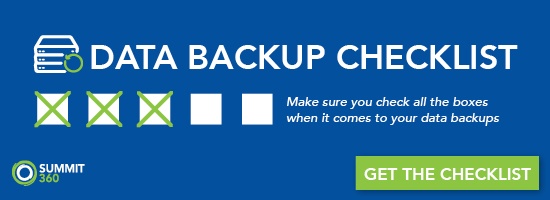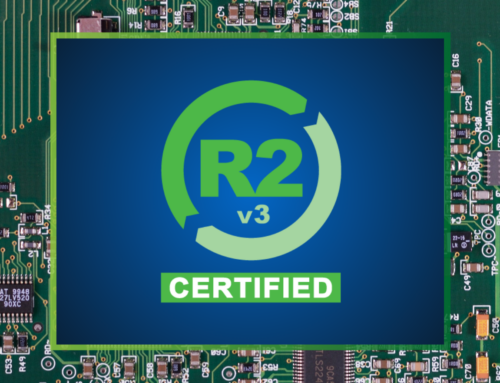If you survey CTOs and CIOs about what keeps them up at night, data security would likely rank at the top. These leaders know the importance of protecting company data – especially when customer data is involved.
If sensitive customer data is accidentally exposed, it has the potential to harm brands in several expensive ways:
- Government fines
- Civil lawsuits
- Lost customer trust
So, what happens when you have IT equipment that contains sensitive data but is no longer in use or is up for replacement? That’s when you need a rigorous process that ensures your equipment is cleansed correctly and your data remains secure.
Data wiping options and the process of IT asset disposition
Cleansing data-carrying devices – whether by software wipe or equipment shredding – is just one step in the complex IT asset disposition (ITAD) process. Most companies approach this step in one of two ways.
Internally
Some companies choose to wipe sensitive data on their own. This is usually, but not always, reserved for huge brands that use massive amounts of IT equipment. They have the time, resources, and space to cleanse assets internally before sending them to be recycled or sold in the secondary market.
Externally
Other brands work with an external partner to cleanse their data-carrying devices and manage each step in the ITAD process. There are several advantages to this approach. First, certified ITAD vendors have expertise in evolving data-security requirements and regulations. They also adhere to industry-wide best practices. And they follow a consistent, detailed process to protect your company’s sensitive data. Finally, they provide you with a critical audit trail should you need one.

How ITAD vendors secure your brand and protect your sensitive data
Even if your brand has the time and resources to cleanse data-carrying devices, it may make sense for you to outsource this work instead. Here’s an overview of how certified ITAD vendors help your brand remain secure and protect your sensitive data:
- Industry best practices – Certified ITAD vendors follow all industry best practices and standards, whether using software or shredding equipment down.
- Regulations and requirements – From FACTA and HIIPA to GLBA and SOX, your ITAD vendor should be well-versed in your industry’s regulations. And their processes should comply with the unique requirements of each.
- Secure facility – ITAD vendors should have access-restricted facilities and closely monitor where your equipment is located and who has access to it. They should also have security measures in place to track every piece of equipment coming into and out of their facility.
- Knowledgeable team – Vendors have carefully selected teams educated about your data-security concerns and committed to protecting your brand.
- Chain of custody protocols – From the time your assets arrive on their dock until you receive a final report, reputable ITAD vendors have strict protocols in place. They should be able to track each piece of your equipment throughout the disposition process and document each person who handles your gear and why.
- Q&A audit – Vendors should conduct thorough Q&A audits that check their processes against your requirements and industry standards.
- Reporting – Using an ERP system that manages the overall process, ITAD vendors should be able to provide you with an end-of-process report that serves as an audit-trail and shows you did the right thing by securely disposing of your assets.
Reputable ITAD vendors invest in their business, develop detailed processes and take these precautionary measures for one reason: keeping your company’s data secure.
Strict environmental practices also protect your brand
Even the most reliable and well-built pieces of hardware eventually reach their end of life. When that happens, it’s critical that your brand disposes of assets correctly and in an eco-friendly way.
No brand wants equipment with their asset tag discovered in a landfill or dumpster, creating environmental risks, not to mention brand reputation concerns with significant financial implications.
Working with an ITAD vendor is the best way to dispose of your IT assets following all federal, state, and local regulations governing environmental risks. They should have established partnerships with downstream vendors qualified to tear down and recycle component parts based on the material type and potential hazards.
When in doubt, outsource data security
If you’re questioning whether you have the resources and expertise required to keep your company’s data secure and meet environmental standards, consider outsourcing your ITAD.
Interview a few potential partners. Ask them plenty of questions about their:
- Standards and best practices
- Facility and team
- Processes and protocols
- Audit trail and reporting
Then, choose the vendor that’s committed to partnering with you to secure your brand and protect your sensitive data.
Want to learn more? Contact us today.






